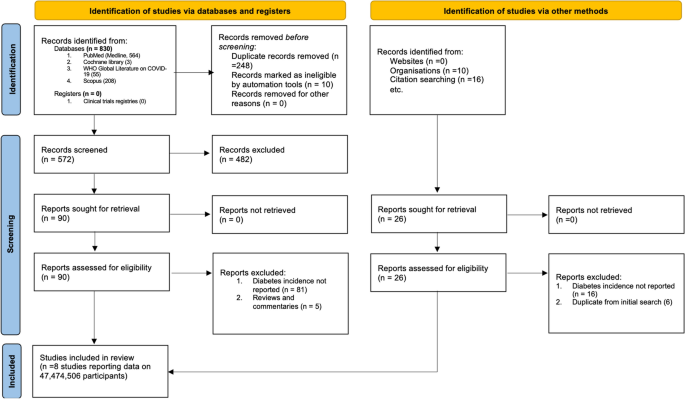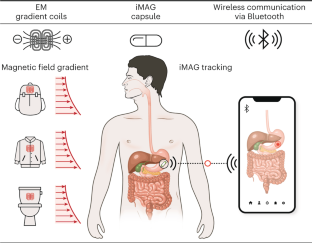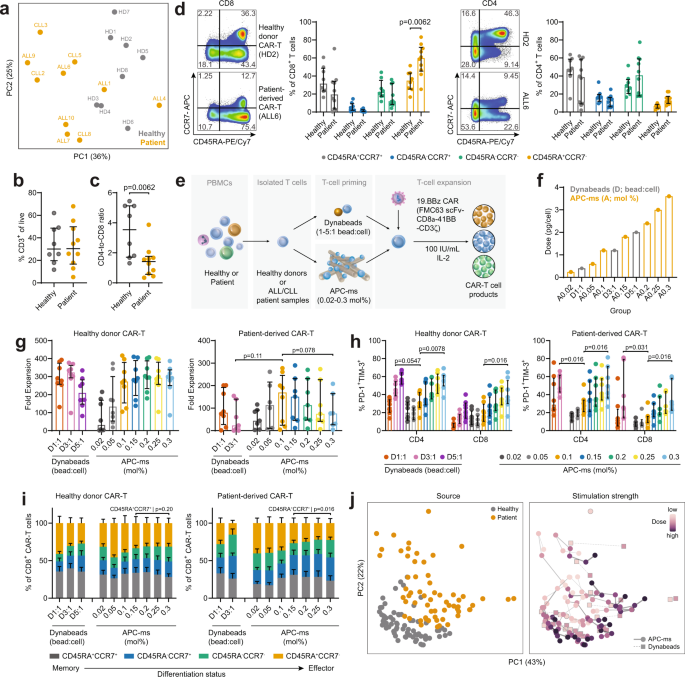2023-02-13 ペンシルベニア州立大学(PennState)
◆先行研究では、COVID-19は一般集団と比較して、被爆者における糖尿病の発症率を高める可能性があることが示されていますが、その原因はよく分かっていません。研究チームによると、COVID-19の原因ウイルスであるSARS-CoV-2は、膵臓、小腸、腎臓の細胞など多くの臓器や組織の表面にある酵素受容体に結合する。他の研究チームは、このウイルスがインスリン濃度に影響を与え、インスリンを生産する膵臓のベータ細胞の死を誘発することを発見している。
◆”我々は、COVID-19が糖尿病を引き起こすと明確に結論づけることはできませんし、この関連を説明する生物学的原因があるかどうかについては、さらなる研究が必要です。”と、ペンシルバニア州立保健大学の内科研修医であるPaddy Ssentongoは述べています。”しかし、ムンプスウイルス、ロタウイルス、サイトメガロウイルスなどの他のウイルスが、糖尿病の発症と関連していることが分かっているので、人体の複数のシステムに影響を与えることが分かっているSARS-CoV-2が、同じことをすることもあり得ないことではありません。”
◆Ssentongoと公衆衛生科学助教授のDjibril Baは、COVID-19と糖尿病の関連性について、最大級のメタアナリシス(既存の研究の包括的レビュー)を完成させました。彼らは、2019年12月から2022年10月中旬までに行われた850以上の研究のうち、8つの適格な研究からデータを取り出した。彼らの最終的な分析には、400万人以上のCOVID-19患者と、病気と診断されていない4300万人の対照患者からのデータが含まれています。
◆8つの研究はそれぞれ異なるリスクレベルを報告しているが、研究チームは統計モデリングを用いて、COVID-19生存者がウイルスと診断されていない人よりも糖尿病を発症するリスクがどれだけ高いかを示す指標である平均リスク比、すなわちプールされたリスク比を求めた。つまり、COVID-19の生存者は、新たに糖尿病を発症するリスクが66%高いということになる。このリスクは、年齢、性別、研究の質によって変わることはなかった。さらに統計解析を行い、ある研究が結果に不釣り合いに影響を与えていないか調べたところ、どの研究も他の研究より結果を左右していないことが分かった。この結果は、11月23日付のNature Scientific Reportsに掲載されました。
<関連情報>
- https://www.psu.edu/news/research/story/covid-19-survivors-may-have-higher-risk-developing-diabetes/
- https://www.nature.com/articles/s41598-022-24185-7
COVID-19と糖尿病の関連性:システマティックレビューとメタアナリシス Association of COVID-19 with diabetes: a systematic review and meta-analysis
Paddy Ssentongo,Yue Zhang,Lisa Witmer,Vernon M. Chinchilli & Djibril M. Ba
Nature Scientific Reports Published:23 November 2022
DOI:https://doi.org/10.1038/s41598-022-24185-7

Abstract
Emerging evidence suggests that coronavirus disease-2019 (COVID-19) may lead to a wide range of post-acute sequelae outcomes, including new onset of diabetes. The aim of this meta-analysis was to estimate the incidence of newly diagnosed diabetes in survivors of COVID-19. We searched MEDLINE, Scopus, Cochrane Central Register of Controlled Trials and the World Health Organization Global Literature on Coronavirus Disease and clinical trial registries for studies reporting the association of COVID-19 and diabetes. Search dates were December 2019–October 16, 2022. Two investigators independently assessed studies for inclusion. Risk of bias was assessed using the Newcastle–Ottawa Scale. We estimated the effect of COVID-19 on incident diabetes by random-effects meta-analyses using the generic inverse variance method. We identified 8 eligible studies consisting of 4,270,747 COVID-19 patients and 43,203,759 controls. Median age was 43 years (interquartile range, IQR 35–49), and 50% were female. COVID-19 was associated with a 66% higher risk of incident diabetes (risk ratio, 1.66; 95% CI 1.38; 2.00). The risk was not modified by age, sex, or study quality. The median risk of bias assessment was 7. In this systematic review and meta-analysis, COVID-19 was associated with higher risk for developing new onset diabetes among survivors. Active monitoring of glucose dysregulation after recovery from severe acute respiratory syndrome coronavirus 2 (SARS-CoV-2) infection is warranted.


